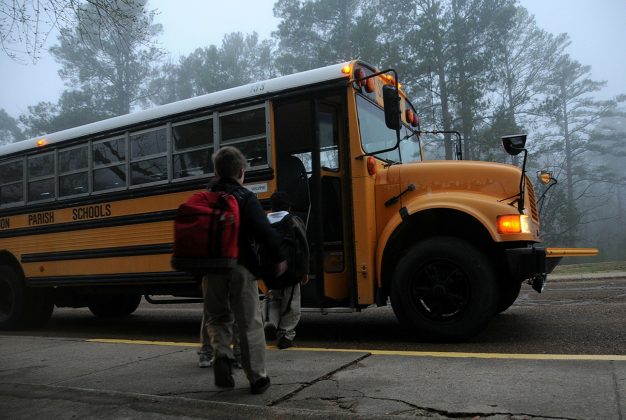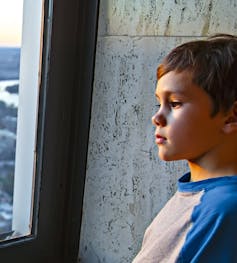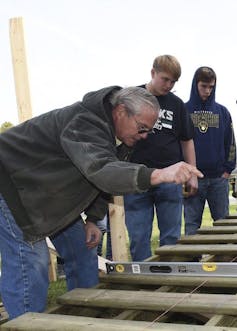
What’s next for schools after coronavirus? Here are 5 big issues and opportunities
No schools, no exams, more online learning and parents in COVID-19 lockdown with their kids. What a mess!
People are responding heroically. Some parents are working from home, others have lost their jobs and teachers are creating an entire new way of doing their jobs — not to mention the kids themselves, stuck inside without their friends, writes Andy Hargreaves, Boston College
Somehow, we will get through this. When we do, how will things look when school starts again?
One of my university projects connects and supports the education leaders of six countries and two Canadian provinces to advance humanitarian values, including in their responses to COVID-19.
From communication with these leaders, and drawing on my project team’s expertise in educational leadership and large-scale change, here are five big and lasting issues and opportunities that we anticipate will surface once school starts again.
Extra student support needed

Support will be needed for our weakest learners and most vulnerable children to settle down and catch up.
(Shutterstock)
After weeks or months at home, students will have lost their teachers’ face-to-face support. Many young people will have experienced poverty and stress. They may have seen family members become ill, or worse. They might have had little chance to play outside.
Rates of domestic abuse and fights over custody arrangements have been on the rise during the COVID-19 pandemic.
Many children will have lost the habits that schools teach them — sitting in a circle, waiting your turn, knowing how to listen and co-operate. More than a few will exhibit the signs of post-traumatic stress.
A lot will have spent hours looking at smartphones or playing video games.
And the learning gaps will undoubtedly widen between children from poorer and better-off homes.
Although governments may be anticipating upcoming austerity, we’ll actually need additional resources. We’ll need counsellors, mental heath specialists and learning support teachers to help our weakest learners and most vulnerable children settle down and catch up.
Prioritizing well-being
Well-being will no longer be dismissed as a fad. Before this crisis, there were murmurings that student well-being was a distraction from proper learning basics. No more.
It’s now clear that without their teachers’ care and support it’s hard for many young people to stay well and focused. Being well, we’ll appreciate, isn’t an alternative to being successful. It’s an essential precondition for achievement, especially among our most vulnerable children.
More gratitude for teachers

Teacher Angie Stringer, with a ‘Stringer loves her students,’ at a car parade in March 2020, in Suwanee, Ga.
(Curtis Compton/Atlanta Journal-Constitution via AP)
Teachers are among the unsung heroes of COVID-19: preparing resources and guidance for remote learning, dropping off school supplies in plastic boxes, connecting with kids and their parents to make sure they’re OK — even while many have kids of their own at home.
Parents are fast coming to appreciate everything their teachers do.
It’s hard enough when parents have two or three kids at home all day now. Many will surely realize just how hard it must be to have 25 to 30 or more in a class. Once the working world regains a degree of normality, we won’t take our essential workers for granted so much. Teachers will be among these.
Vocational skills and training

Trades before social distancing: Instructor Jeff Mitchell, left, guides students with the construction trades program at Berrien Springs High School, in Benton Harbor, Mich., in November 2019.
(Don Campbell/The Herald-Palladium via AP)
The dignity and importance of vocational education, skills and training will be reflected in what we teach.
The pandemic has exposed the vulnerability of the global economy to collapses in essential supplies. So Canada will look to bring some of its essential manufacturing back home.
There will therefore have to be a related push for vocational skills and training, and higher status for schools and programs that provide it.
It’s now obvious how much we depend on and need to value all our essential workers like care home workers, construction workers and retail staff who serve us from behind plexi-glass. My widowed Mum raised three boys while she cleaned people’s homes, worked in local stores, and cared for other people’s children. There was nothing unskilled about what she did.
While no one quite agrees on what it means to be “working class,” what’s clear is it involves sectors of work, pay levels and a generational accumulation of cultural and social capital, dispositions and tastes.
When the regular economy starts up again, some people will feel proud to call themselves working class once more and insist on the financial and broader recognition that goes with it.
This also implies rethinking the gig economy and its impact on people’s lives, as well as what kinds of learning position people to survive tumultuous changes, experience mobility and build meaningful lives.
More and less tech for education
During COVID-19, there’s been a mad scramble to find technology to support learning at home. But in our ARC Education project network, the deputy minister of education in one provinces informed us that upwards of 30 per cent of students don’t have internet access or digital devices at home.
As money gets tighter, families on the edge of poverty may also have to choose between maintaining internet services or putting food on the table.

Student Jillian Reid, 9, works at a laptop in Cremona, Alta., in March 2020.
THE CANADIAN PRESS/Jeff McIntosh
Uruguay, one of the countries in our project, set up an arms’ length government innovation agency in 2007. Every child was given a personal device and an internet connection. This stimulated more than a third of the country’s schools to develop projects in which innovation and deeper learning, not just technology, are in the foreground.
In this pandemic, technology has supplemented teaching and teachers; not replaced them. During the first week of school closures in Uruguay, use of the agency’s platform increased by 1,100 per cent. Canada needs to develop a coherent and comprehensive national approach to tech connectivity and learning that will support all schools.
Conversely, there will also be less technology. We certainly need better digital resources. But anyone who thought that online learning can replace teachers will be rapidly disabused of the idea — especially parents stuck inside with children when kids can’t concentrate or self-regulate.
Read more:
Mandatory e-learning is a problem in Ontario high schools
We’re in a long, dark tunnel at the moment. When we emerge, our challenge will be to not proceed exactly as before, but to reflect deeply on what we have experienced, and take a sharp turn in education and society for the better.![]()
Andy Hargreaves, Research Professor in Education, Boston College
This article is republished from The Conversation under a Creative Commons license. Read the original article.




